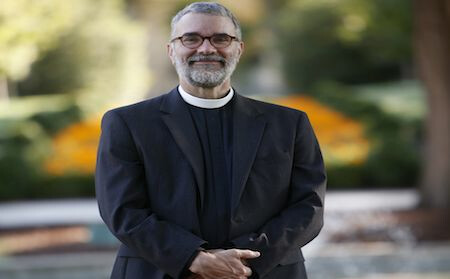Talking About "Silence"

This blog entry amounts to a piece of advice: go see this movie. It is a presentation of the novel by Endo, which tells the tale of the persecution of the Jesuit mission to the Japanese in the 17th century. By this time the Christians were hidden, as were the priests who arrived. When found, they were tortured unless they agreed to step on icons of Christ or Mary called the fumie. (Similar demands were made in the Roman persecution of the early Christians in the later 3rd century). Such apostasy was amounted to a betrayal of Christ.
The first and most obvious reaction is to relativize and minimize so much that we worry about in our daily lives and in the lives of our congregations. The martyrs remind us what is really at issue in our life, though we be blessed by a time and place to witness in which we are not submitted to such enormities.
Secondly the ‘Silence’ offers a subtle portrayal of the Dynasty’s inquisitor. He offers arguments in favor of a cultural relativism which one might well hear in the context of academic theology in our time: why not leave the Japanese to their own distinctively Japanese expressions of religion? And aren’t those who claim to be Christians really worshipping something enmeshed in their own assumptions and hence unrelated to what we would consider God to be? Meanwhile the inquisitor shows himself to be a refined sadist, and so undercuts his own arguments by his conduct.
Thirdly, both the novel and the movie ask some unusual questions about the nature of Japanese faith in particular. The apostasized Jesuit Herrera says that Japan is a `swamp,’ into which all things are assimilated. Doesn’t this correspond in a uniquely Japanese way to the condescension of Jesus himself? So wouldn’t contextual Christianity here be a faith of the abject and the ‘surrendered’? Is this making the best of where they were, or is this the voice of the tempter again? The question is posed by the movie as a whole.
Finally we may note how far the great director Martin Scorcese has come since ‘The Last Temptation of Christ.’ However we answer these questions, he has offered a beautiful and serious Catholic movie, which I commend to you.
Peace,
+GRS



